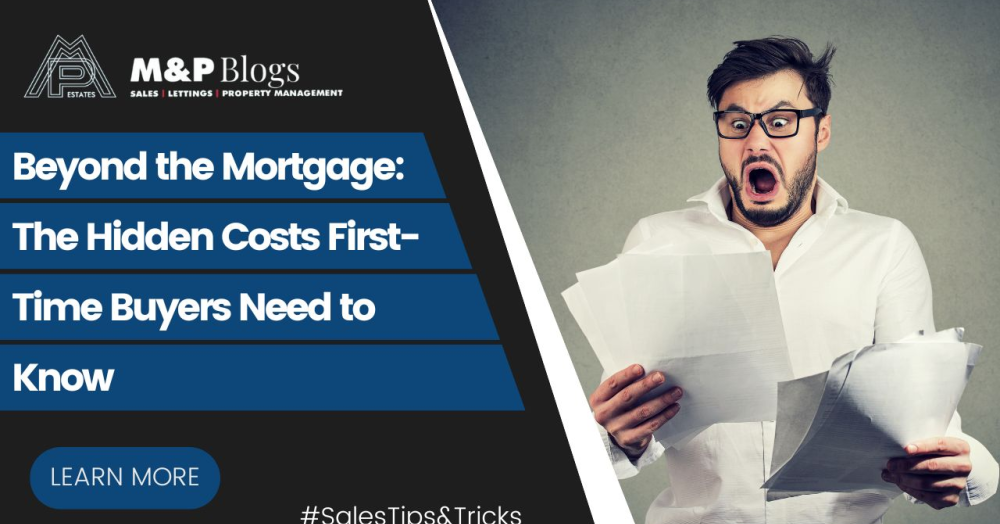Thinking of buying your first home? The mortgage is only part of the picture. From legal fees to moving vans, there are hidden costs that catch many first-time buyers off guard. Here’s what you need to budget for—before you start picking curtains.
Buying your first home is a huge milestone and for many, the dream starts with calculating what you can borrow on a mortgage. But what often gets overlooked are the less obvious costs that come with getting the keys to your new place. These “hidden” expenses can quickly add up, and if you're not prepared, they can catch you off guard.
Let’s break them down so you can be financially ready from the start.
1. Stamp Duty
If you're purchasing in England or Northern Ireland, first-time buyers don’t pay Stamp Duty on homes up to £425,000. However, if your property is valued between £425,000 and £625,000, you’ll pay 5% on the amount above £425,000. Anything over £625,000? No first-time buyer relief applies. It’s crucial to factor this in early when budgeting.
2. Solicitors’ Fees
Conveyancing—the legal process of transferring property ownership—typically costs between £800 and £1,500, depending on the property value and whether it’s leasehold or freehold. Make sure your quote includes search fees and VAT, and always ask if there are any potential extras.
3. Survey and Valuation Costs
Your lender may carry out a basic valuation, but it’s wise to get your own survey done. A HomeBuyer Report can cost between £400 and £1,000, while a full structural survey may be more for older or unusual properties. This is an optional cost, but skipping it could be costly in the long run if issues surface later.
4. Mortgage Arrangement Fees
Some mortgages come with arrangement or product fees—sometimes rolled into the loan, sometimes paid upfront. These can range from £500 to £2,000. Always check the APRC (Annual Percentage Rate of Charge) to get a true picture of what you're signing up for.
5. Removal Costs
Even if you rope in a few mates and a van, moving isn’t free. Professional removals for a small house can cost between £400 and £1,000 depending on distance and volume. Don’t forget boxes, packing materials, or storage if there's a gap between moving out and in.
6. Buildings Insurance
This is usually required by your lender before you exchange contracts. It covers the rebuild value of your home and needs to be in place from the day you legally commit to buy. Budget around £150–£300 annually depending on the property type and location.
7. Furnishing and Utilities
Don’t underestimate the cost of kitting out your home. Even basic furniture, white goods, and window coverings can put a dent in your savings. Also, you may need to pay connection fees for broadband or utilities in some areas.
The key to a smooth first-time purchase? Preparation. Don’t just save for your deposit—build a buffer for these hidden extras. Being fully informed ensures you won’t be blindsided, and you can step over the threshold of your new home with confidence, not stress.


